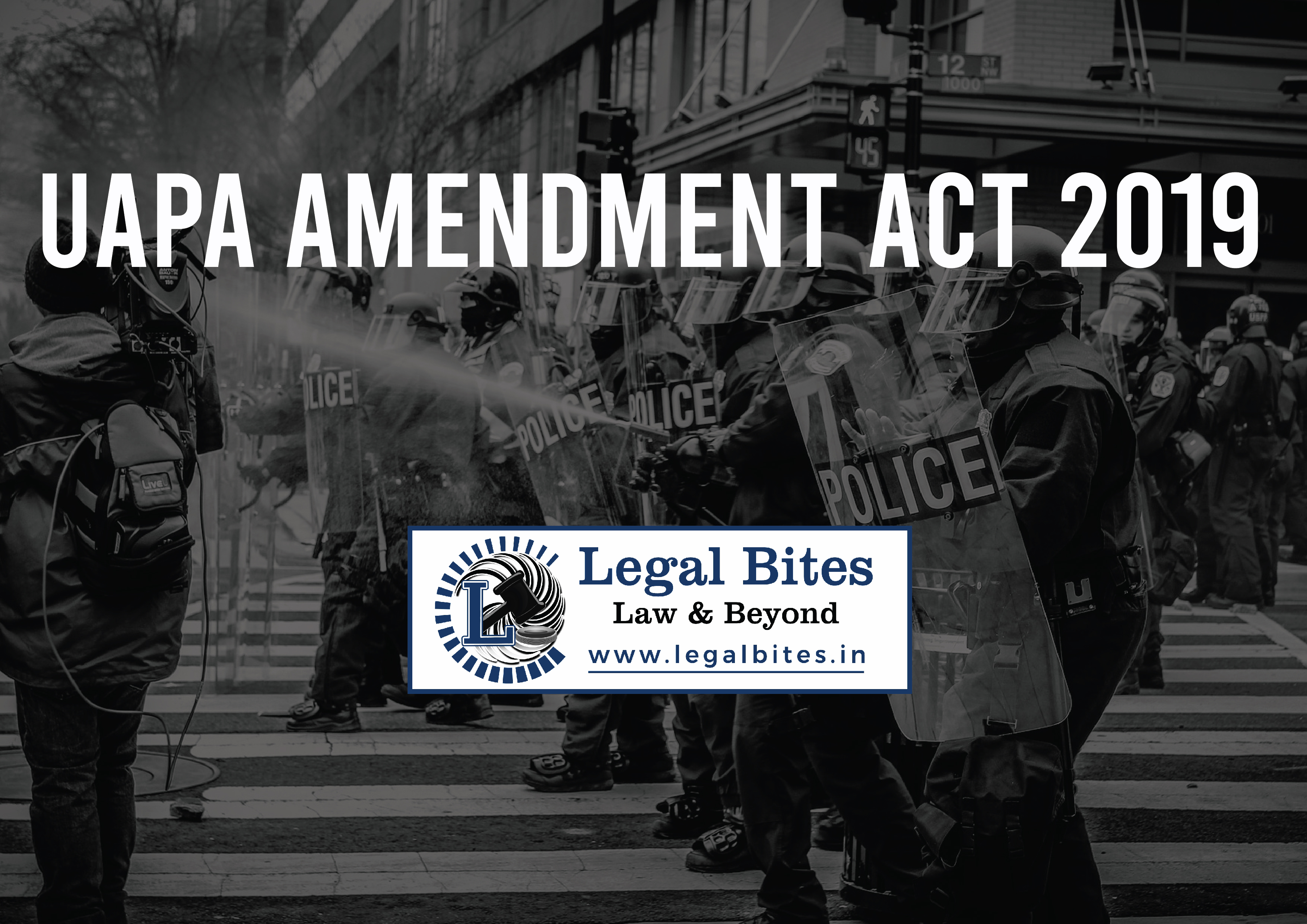UAPA Amendment Act: Here is All you Need to Know
Parliament of India has passed several controversial bills. One of them was the Unlawful Activities (Prevention) Amendment Bill, 2019. Pursuant to the amendment, an individual can now be declared as a “terrorist” by the Central Government at any stage of the investigation without any procedural and constitutional safeguards whatsoever. The said amendment has been subjected to a lot… Read More »

Parliament of India has passed several controversial bills. One of them was the Unlawful Activities (Prevention) Amendment Bill, 2019. Pursuant to the amendment, an individual can now be declared as a “terrorist” by the Central Government at any stage of the investigation without any procedural and constitutional safeguards whatsoever. The said amendment has been subjected to a lot of criticism by several public-spirited citizens and human rights activists. Two writ petitions, challenging the constitutional validity of the amending Act, have also been filed in the Supreme Court of India.
Here is all you need to know about the UAPA Amendment Act, 2019:
- The Unlawful Activities (Prevention) Act, 1967 was enacted to penalize certain activities which harm the sovereignty and integrity of the country. It falls within the category of “anti-terrorism laws” and has often been remarked to be one of the most dangerous laws in the country. This is mainly due to the wide powers that it grants to the Government and the various investigation agencies without any significant constitutional safeguards.
- The law has been previously amended in 2004, 2008 and 2013. With each and every amendment, the law became more “draconian” in nature.
- Taking note of the low conviction rates under the Act in cases being investigated by the National Investigation Agency (NIA), the Central Government had proposed to amend the law in 2019.
- The primary objective of the Unlawful Activities (Prevention) Amendment Bill, 2019 was to tone down the vast amount of “unnecessary” procedural requirements due to which the NIA was facing difficulties in convicting the offenders.
- The Bill was introduced in the Lok Sabha on 8th July 2019. It was passed by the Lower House on 24th July 2019 and by the Upper House on 2nd August 2019. It received the President’s assent and was notified in the Official Gazette on 8th August, 2019.
The Amendment makes the following notable changes in the Act:
- It empowers the Director-General of the National Investigation Agency to grant approval of seizure or attachment of property when the case is investigated by the said agency.
- It amends section 35 of the Act to empower the Central Government to declare an individual as “terrorist” at any stage of the investigation.
- It amends section 43 of the Act to empower an officer of the rank of Inspector of the National Investigation Agency to investigate the offences under Chapter IV and Chapter VI.
Several concerns have been raised with regards to the amendment to section 35 of the Act. Two petitions have been filed in the Supreme Court of India stating that the said amendment is unconstitutional for it is in clear violation of Articles 14, 19 and 21 of the Constitution of India with special emphasis upon the Right to Reputation.
The Apex Court is waiting for the Centre’s reply.


